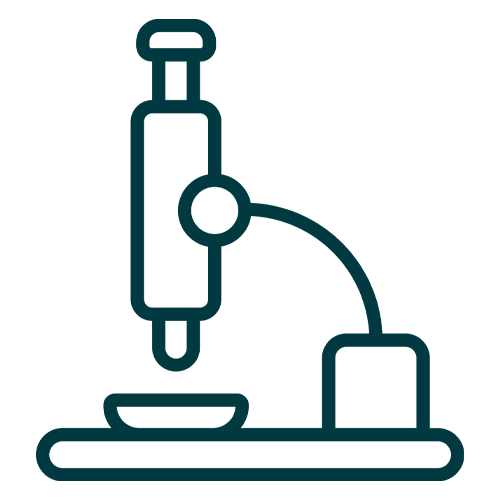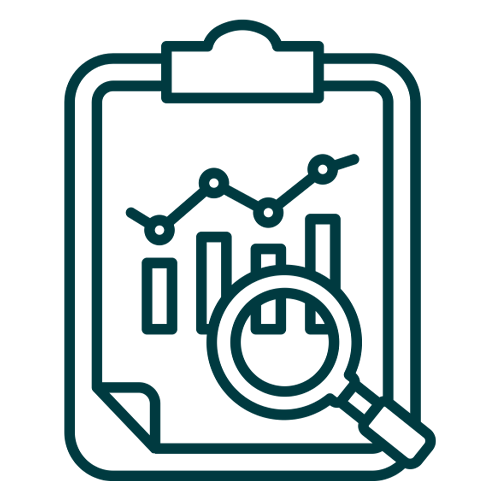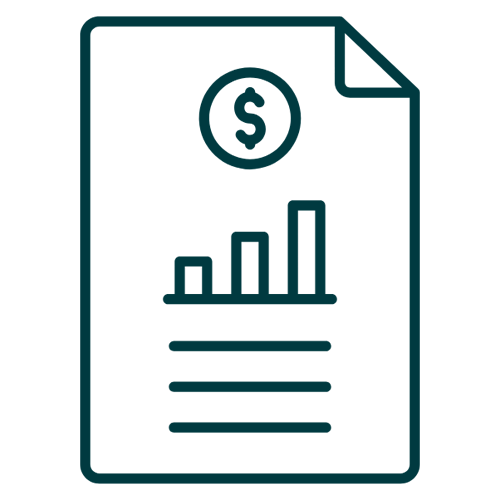Investment At Work
Providing Safe Water At Scale
Investment At Work
Providing Safe Water At Scale
We are a nonprofit social enterprise bridging the gap between available and safe water in rural communities in Central America.
With staff in Nicaragua, Honduras, and El Salvador, Cova is a locally managed organization dedicated to the successful implementation of safe water solutions through tracking, evaluating, and revisiting community water treatment installations to ensure sustained impact. Our strong partnerships with local communities, nonprofits, and governmental organizations help us expand our reach and increase our effectiveness in our mission to build stronger, healthier communities.
Mission
Building a healthier Central America through community-centered safe water solutions.
Vision
A world where all communities have access to safe water.
EIN 26-4080644
The Complex Challenge
Globally, 4.4 billion people lack access to safely managed water.
According to the WHO, around one million people are estimated to die each year from diseases directly attributable to unsafe water, inadequate sanitation and poor hygiene practices. Many of these deaths are in children under 5 years of age.

Health
Unsafe drinking water is one of the greatest single threats to human health. More than 1,000 children under the age of five die every day from diseases caused by unsafe water and sanitation. Most of these deaths are easily preventable.
Education
Worldwide, 29% of schools lack access to safe water and sanitation, leading to 443 million school days missed each year due to preventable water-related diseases. Safe water helps children stay in school and build brighter futures.
Income
Sickness caused by unsafe water leads to adults missing out on crucial income opportunities for themselves and their families. Studies show that every $1 invested in water and sanitation provides a $4 economic return.
Unsafe water limits people’s access to education, health, and economic opportunity. It worsens gender disparities. And climate change is intensifying the water crisis.
Investing in safe water not only reduces death and disease, but also increases family income, keeps girls in school, and improves communities. It’s one of the easiest and smartest investments we can make as a society, yet half the world’s population lacks access to this fundamental human right. Access to safe water provides a basic need that lays the foundation for building a stronger, more vibrant life for millions of Central Americans.
Unsafe water limits people’s access to education, health, and economic opportunity. It worsens gender disparities. And climate change is intensifying the water crisis.
Investing in safe water not only reduces death and disease, but also increases family income, keeps girls in school, and improves communities. It’s one of the easiest and smartest investments we can makes as a society, yet half the world’s population lacks access to this fundamental human right. Access to safe water provides a basic need that lays the foundation for building a stronger, more vibrant life for millions of Central Americans.
Recent Challenges
U.S. Foreign Assistance Suspended
Due to the recent suspension of U.S. foreign assistance, access to clean water for millions globally will be affected. Many of you have reached out to ask if we are affected, and we appreciate the solidarity.
As an organization committed to safe water in Central America, the funding suspension means the loss of crucial funding for key programs in Honduras such as the expansion of our model into 300 new communities, a watershed restoration program, and a trial to investigate the potential to scale the Circuit Rider Model at a global level. Historically, Cova has had minimal US Government funding; however the loss of funding for these programs undoubtedly disrupts our ability to deliver immediate support to those who rely on us.
Nevertheless, we remain resilient and optimistic. We know that the strength of our community is in its adaptability and determination. We are committed to continuing our work. This pause, while difficult, is a time for collaboration, for forging new partnerships and sustainable funding sources, and for ensuring that our impact remains far-reaching.
Our Innovative Solution
Our Circuit Rider Model empowers communities towards sustainability.
To ensure sustainable results, Cova Circuit Rider Water Technicians routinely travel to rural communities across Central America to provide training, capacity building, technical assistance, and water quality monitoring support through a three-phase approach.

Cova’s Circuit Rider Model
Each Circuit Rider creates a monthly circuit among 50 communities, guaranteeing customers always have safe drinking water.
Through Cova-led training and capacity building, communities move from Phase 1 to Phase 3, assuming increasing responsibilities required to maintain and operate their water system. Cova Circuit Riders remain available to communities for technical assistance and further capacity building as needed. Moving communities from Phase 1 to Phase 3 allows a Circuit Rider to support an additional 150 communities.
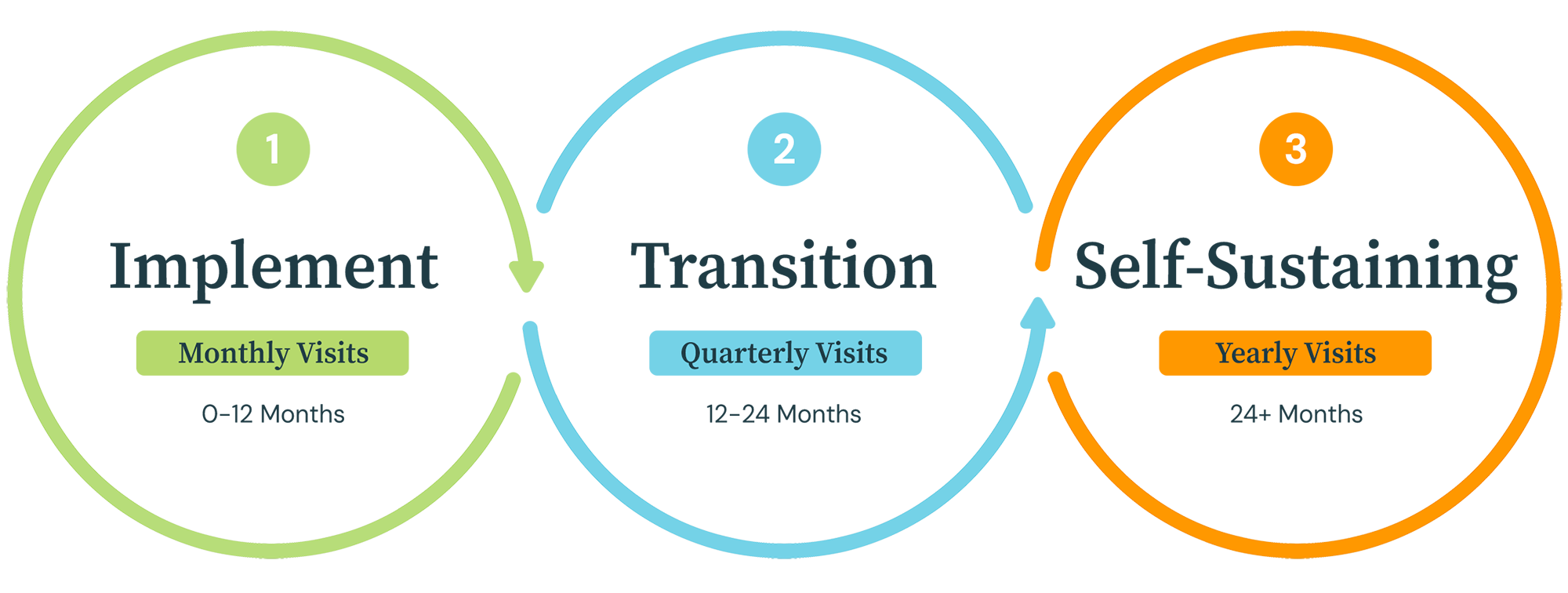
Phase 1
Implement
50 Communities Supported by One Cova Circuit Rider
Water Treatment Implementation
Community Capacity Building
Chlorine Distribution
On-Site Water Quality Monitoring
Technical Assistance
Laboratory Water Quality Analysis
Phase 2
Transition
50 Communities Supported by One Cova Circuit Rider
—
—
Chlorine Distribution
On-Site Water Quality Monitoring
Technical Assistance
Laboratory Water Quality Analysis
Phase 3
Self-Sustaining
150 Communities Supported by One Cova Circuit Rider
—
—
—
—
Laboratory Water Quality Analysis
Technical Assistance
See our peer-reviewed study on our Circuit Rider model.
Circuit Rider Activities
Circuit Riders routinely travel to rural communities to provide training, capacity building, technical assistance, and water quality monitoring services.
Community Phases
After 24 months of regular site visits and support by Circuit Riders, communities become self-sufficient and able to maintain their water system.
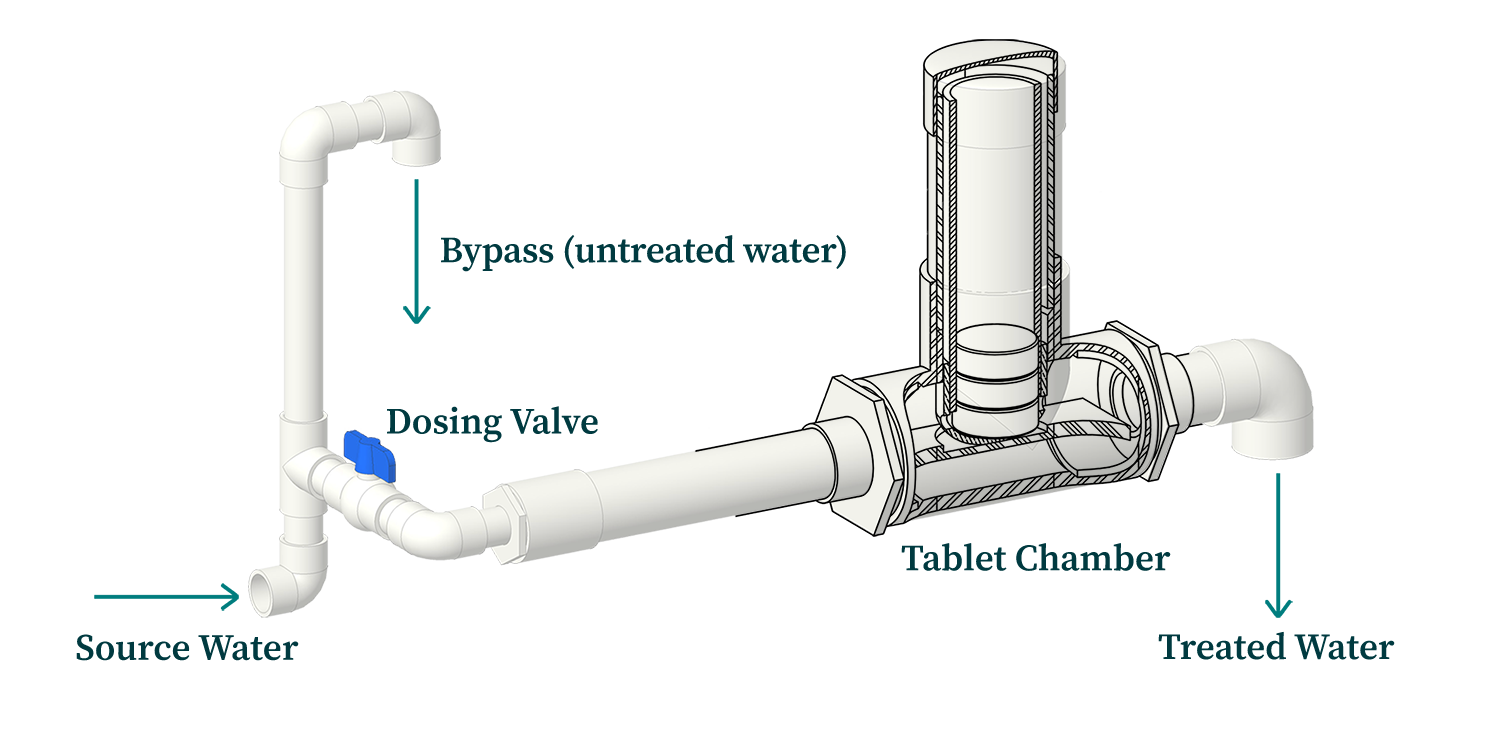
Our Community Water Treatment System
Cova’s water treatment technology is a low-cost, low-maintenance, locally-sourced solution that attaches to any rural community’s water tank and inactivates pathogens in water systems by releasing a controlled dosage of chlorine. One system can provide safe water for an entire community and requires no electricity to operate.
Our Community Water Treatment System
Cova’s water treatment technology is a low-cost, low-maintenance, locally-sourced solution that attaches to any rural community’s water tank and inactivates pathogens in water systems by releasing a controlled dosage of chlorine. One system can provide safe drinking water for an entire community and requires no electricity to operate.
Results and Studies
Evidence shows that water treatment is one of the most cost-effective ways to save children’s lives.
The impact of Cova’s programs have been studied, measured, and referenced by academic researchers, departments of health, and scientific evaluations.
- Peer-reviewed article: Performance of EOS Circuit Rider Model in Honduras (ACS Environmental Science & Technology, Water, 2023)
- Passive In-Line Chlorination for Drinking Water Disinfection: A Critical Review
(Environmental Science & Technology, 2022) - Health Impact Evaluation – El Tuma, La Dalia
(Nicaragua Ministry of Health Results, 2018) - Effectiveness of CTI Water Chlorinator at Controlling Bacterial Contamination in Rural Nicaragua’s Drinking Water
(Compatible Technology International, 2015) - Circuit Rider post-construction support: improvements in domestic water quality and system sustainability in El Salvador
(Journal of Water, Sanitation and Hygiene for Development, 2014)
Our Life-Changing Impact
1.7 million people provided with safe water solutions.
We are ending the water crisis one community at a time. By putting people first in our mission to end the water crisis, Cova delivers solutions that improve quality of life, allowing children to attend school, parents to earn crucial income, and communities to flourish.

1,745,487 People
Total All-Time Reach Provided With Access To Safe Water Solutions
322,934 Families
Total All-Time Reach Provided With Access To Safe Water Solutions
2,672 Communities
Total All-Time Reach Provided With Access To Safe Water Solutions
Active Reach: Communities/Individuals currently participating in Cova’s Circuit Rider Model
1.7 Million Central Americans (and counting) Provided with Safe Drinking Water Solutions
Nicaragua
871,358 people served
1,467 communities served
Honduras
685,737 people served
1,101 communities served
El Salvador
188,392 people served
104 communities served
Using data to drive change
We are creating the region’s largest water quality database.
Our circuit riders gather water quality data daily from communities. All data is organized and shared with local government who in turn use these numbers to help plan and prioritize future water projects and allocate resources.
5,976 Laboratory tests conducted to date
Ensuring communities’ water is safe. Always.
In addition to regular water quality testing in the field, samples of community’s water is brought to Cova’s laboratories for in-depth water quality assessment, testing for a dozen different parameters.
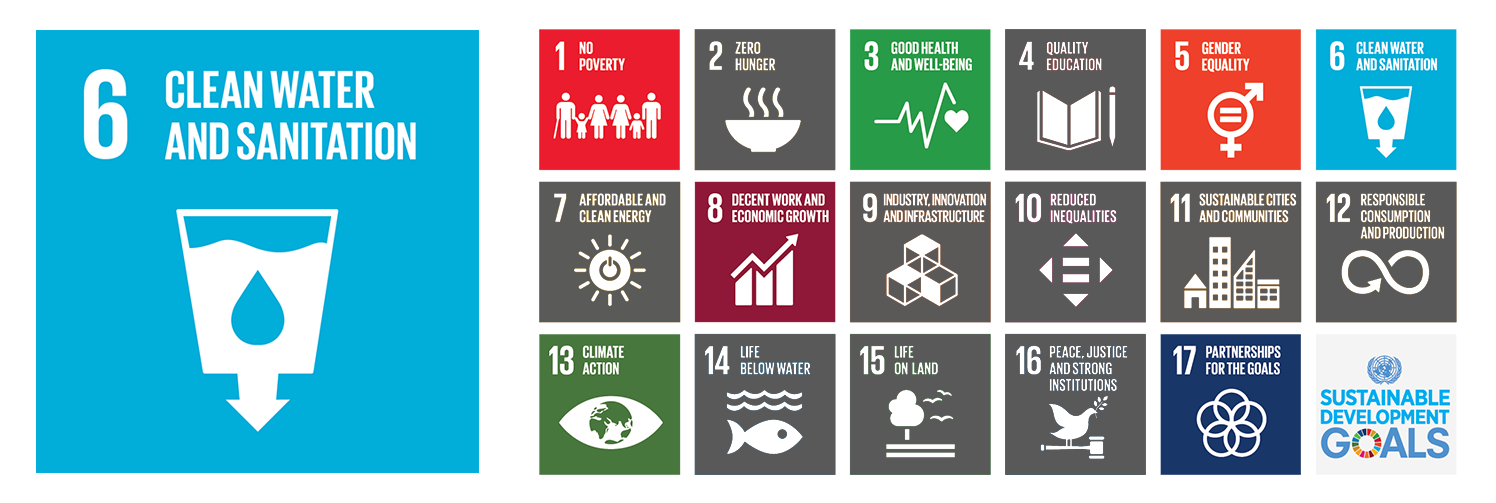
Cova is committed to helping realize the United Nations’ Sustainable Development Goal 6 to “ensure availability and sustainable management of water and sanitation for all.” In addition to SDG 6, Cova’s work also supports gender equality, economic growth, climate action, relieving poverty, and good health.
Reaching 4 Million People With Safe Water Solutions By 2028
Our Strategic Initiatives
5 Year Plan
Short-Term

Long-Term

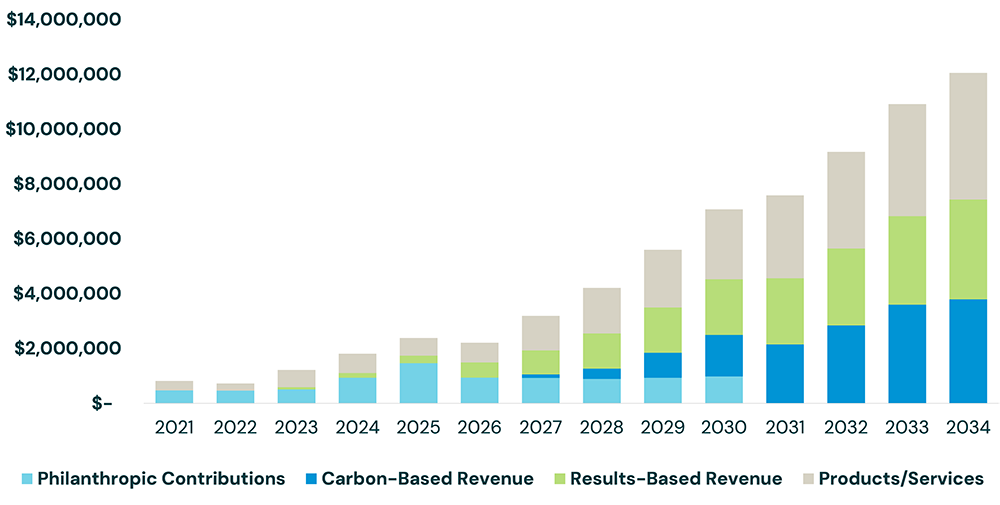
Scaling Our Growth
Total Revenue Forecast
Through diversified revenue sources and increased earned income, we aim to grow our funding while continuing to expand philanthropic support, but reduce the dependency on donations. After 2030, Cova aims to have no reliance on grants or debt to scale services in four country operations.
Scaling Our Growth
Total Revenue Forecast
Through diversified revenue sources and increased earned income, we aim to grow our funding while continuing to expand philanthropic support, but reduce the dependency on donations. After 2030, Cova aims to have no reliance on grants or debt to scale services in four country operations.



